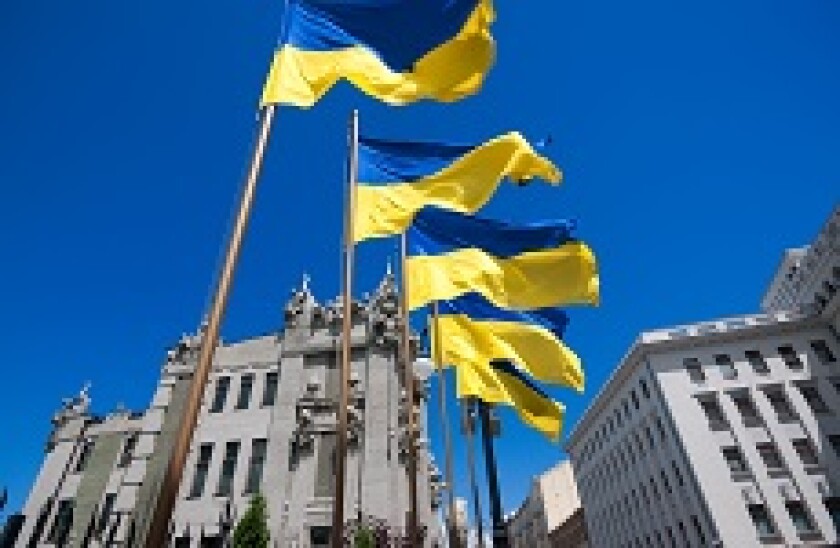Ukraine’s corporate borrowers have taken full advantage of their time in the sun, turning in the highest number of international deals since 2017, according to Dealogic.
Investors’ confidence in the nation’s economy is strong. Paul Greer, senior emerging markets portfolio manager at Fidelity, still considers Ukraine to be a candidate for ratings upgrades, even after both Standard & Poor’s and Fitch upgraded the sovereign in September. Fidelity is overweight Ukrainian assets, both local currency and external.
That seemed impossible in the first quarter of the year. Rarely has the opinion of the international community on an emerging market political leader shifted so quickly and so profoundly. In March, investors in Kiev were bemoaning the fact that the broader rally in emerging market debt had barely touched Ukraine because of concerns around the wildcard presidential candidate comedian-turned-politician Volodymyr Zelensky.
By the middle of 2019, Zelensky’s Western-friendly approach had won him plenty of fans and restored Ukraine’s market access.
The restoration of confidence in the Ukrainian economy has brought down borrowing costs substantially. “Eurobond yields are at their low for the year — around 6%-7%, three to five percentage points down since the start of the year,” says Alexander Martynenko (in November), head of corporate research at ICU in Kiev.
But while the borrowing costs have come down a long way, Martynenko believes that there is still value at present levels. “Ukraine assets are still quite attractive compared to Europe where there are so many fixed income instruments trading with negative yields.”
Local currency booms
In 2019, Clearstream added Ukranian hryvnia T-bills to its network, allowing easier international settlement. “Clearstream has made it easier for us, and others, to invest in Ukraine’s local currency sovereign assets,” says Greer. “It’s another step in the right direction, opening up to foreign portfolio inflows.”
The equivalent of around $5bn of foreign currency has flowed into hryvnia T-bills in 2019, around half of which came via Clearstream. But Martynenko believes there is more to come. As of November, the government auctions have not been large enough for some big funds to take positions. However, Ukraine is doing its best to tap foreign investors’ appetites.
It auctioned a four year note in early November, moving longer in the curve to access foreign accounts. “International demand exceeded supply by five times,” says Martynenko.
Corruption still a concern
Investors are awaiting the verdict of court cases challenging the IMF-mandated decision to nationalise Privatbank, Ukraine’s largest bank. The former owners are suing the Ukrainian central bank to obtain compensation or control of the bank.
One of the former owners, an oligarch called Ihor Kolomoisky, met President Zelensky late in 2019, fuelling speculation that the president would aid Kolomoisky in his efforts.
Zelensky must do what he can to allay these rumours and co-operate fully with the IMF if Ukraine is to fulfil its economic potential. “Privatbank remains the main concern for the IMF,” says Martynenko. “Obtaining the support of the IMF will be important, particularly if the external financial market environment deteriorates. Support from the IMF will open up opportunities to get financial aid from other IFIs like the World Bank and European Commission.”
As long as Zelensky is able to give the IMF and investors the impression that he is serious about tackling corruption, then Ukrainian borrowers and their investors are surely in for another excellent year. GC

